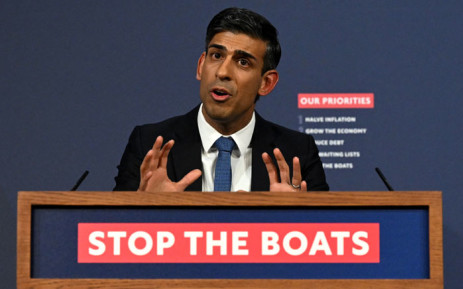COPENHAGEN (Parliament Politics Magazine) – Deportations to Syria will continue, according to the Danish Ministry of Immigration and Integration (DMII), which critics call “repressive.” From Greater Damascus, many refugees of Syria will be deported, according to DMII, citing “better security conditions.”
Human rights organisations, advocacy and activist groups continue to criticise Denmark for violating refugees’ human rights. While many European countries embrace refugees and work to integrate them into their societies, Denmark has taken a racist and confrontational approach. After a few years of arriving in Europe, the majority of Syrian refugees built a life and family, and became role models for integration. However, the situation in Denmark is different.
Ahmed T. stated that he felt terrified, and not accepted there. Despite the fact that his children had been born and he had full-time work, he was afraid he may be deported to Syria.
After the killing of some of his family members, Ahmed T, a Syrian refugee from Damascus, landed in Denmark in 2015. Like several other Syrian refugees, he too is worried about their future, given Danish policies that aim to transfer them to “Safe Syria” despite the fact that it was still very much a war zone.
Denmark was the first European country to request that a considerable number of refugees from Syria leave the country and return to their own country. Since the beginning of 2019, some 400 Syrians in Denmark have had their residence and work permits revoked. Returning refugees have been subjected to forced disappearance and torture according to certain human rights organisations, while others have fled Denmark in search of better chances in other EU countries under rising pressure.
Despite multiple protests and meetings with officials by refugees in Denmark to oppose deportation intentions, the administration continues to carry out its plan. The Danish police have been condemned as authoritarian and brutal by the Coalition for Arab Organisations in Denmark.
In Denmark, the majority of refugee shelters are housed in decommissioned training camps and military barracks. This causes a lot of resentment among immigrants who are isolated and have a difficult time meeting any Danish people. The Danish government doubled the misery of refugees by establishing return- and deportation centres, where refugees are imprisoned as a motivational measure or in conjunction with forced deportation.
Brussels Morning spoke with the Danish Ministry of Immigration and Integration (DMII) to learn more about the realities of forced repatriation of refugees in Denmark.
Brussels Morning (BM): Will Denmark end the use of closed refugee camps or what others said refugee ghettos?
Ministry of Immigration and Integration (DMII): “The decision to reassess the residence permits of persons from Damascus and Rif Damascus was based on a conclusion from the independent, quasi-judicial body Danish Refugee Appeals Board concerning the general security situation in Damascus and Rif Damascus. Based on available background information, the Refugee Appeals Board has found that the situation in Damascus and Rif Damascus has changed to such an effect that people do not risk ill-treatment contrary to Article 3 of the European Convention on Human Rights solely on account of their presence in those areas. The Board still finds the situation in Damascus and Rif Damascus severe, fragile, and unpredictable, but concluded that the situation has improved, and the Board does not consider the changes to be of a completely temporary nature. According to its mandate, the Board has made the assessment based on a wide collection of reports regarding Syria from various sources including reports from the authorities in Sweden, Great Britain, EASO, and different NGOs. At this point, the revocation and denial of the extension of residence permit only apply to persons from Damascus and Rif Damascus with temporary residence permits granted on the grounds of general conditions. Persons from Syria with a residence permit granted on individual grounds, e.g. persons in conflict with the Syrian authorities due to fleeing compulsory military service, are not affected.
BM: Why don’t refugees integrate in Denmark? Whose fault? Is it because you don’t have policies in place?
DMII: When assessing whether the individual asylum-seeker or refugee is (still) entitled to protection in Denmark, the Board takes into account both the current general conditions in the asylum-seekers or refugee’s home area and any relevant individual circumstances. The Board assesses each case on the basis of its individual circumstances and in light of the latest background material.
BM: Why would a refugee born in Denmark suffer to be recognised as a Danish national?
DMII: If concluded that the person is no longer in need of protection, the Board will continue to assess whether revocation or refusal to extend the residence permit is in violation of Denmark’s other international obligations, e. g. the right to respect for private and family life as set out in Article 8 of the European Convention on Human Rights. The Board’s assessment is in accordance with Danish Law and Denmark’s international obligations.
BM: Will Denmark change its policies towards refugees particularly from war zone Syria?
DMII: With regard to forced returns to Syria, there are currently exceptional circumstances. For foreign policy reasons, Denmark does not carry out forced returns to Syria. Denmark refrain from actions that could be viewed as normalising relations with the Syrian regime. Denmark is in no way considering an agreement with the regime on the issue of forced returns. However, Danish authorities will continue to assist persons in Denmark with arranging their voluntary return to Syria and offer financial assistance in case of such a return.






